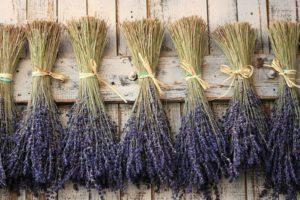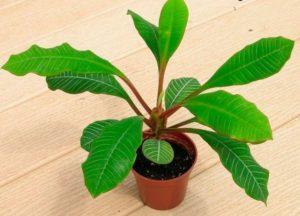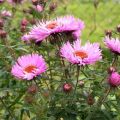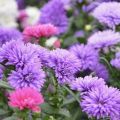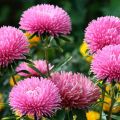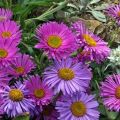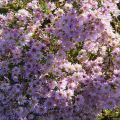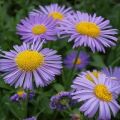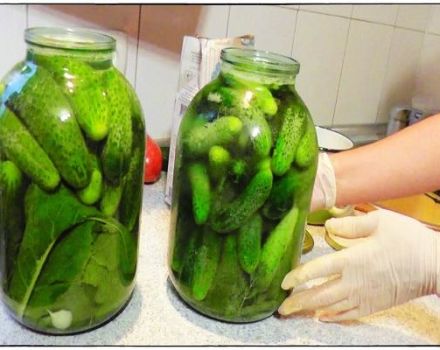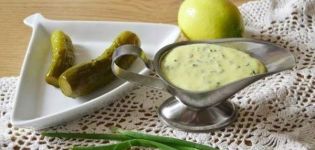Description of the Novobelgiskaya aster variety, planting and care features
It is difficult to imagine a garden without flowers, they delight the eye from early spring to late autumn, improve the mood, make each site unique and distinctive. Asters are beautiful autumn flowers that are not afraid of cold weather and retain the brightness of shades even on the threshold of late autumn. The bright bushes of the Novobelgiskaya aster are pleasing to the eye and allow you to enjoy the richness of colors, forgetting about the impending cold.
Description and characteristics of the Novobelgiskaya aster
Many gardeners are familiar with this flower under the name Oktyabrinka. Many varieties bloom really late - in September-October, the bright color of small numerous flowers makes the plant especially noticeable against the background of autumn grayness.
Astra Novobelgiskaya is a perennial with thin strong stems, a very lush bush. Depending on the variety, it can be undersized (60 centimeters) or high (up to 140 centimeters), often used as a unique hedge or curb plant.
Due to the abundance of varieties, it can bloom from July to November, withstanding temperatures up to -5 ° C, and delight with bright colors of different shades - rich lilac, pink, white.
A huge number of flowers bloom on the plant, the bush is completely covered with them, and resembles a bright cloud. Numerous small leaves of a rich dark green contrast favorably with bright inflorescences.
Varieties of varieties
If desired, you can pick up several varieties of this plant, differing in height and shade, and create a unique garden composition.
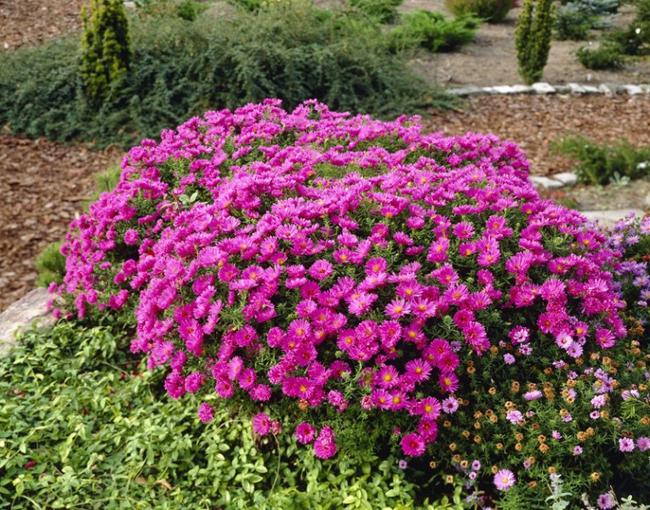
Marie Ballard
The creator of this variety, Ernest Ballard, bred it in 1955. The plant is tall - about a meter in height, with densely spaced stems. The bush is not tied up, and no supports are placed. Quite large flowers, have a rich bluish-lilac hue, when fully opened, a bright yellow core is exposed. Blooms in late July, flowering period - 2 months.
Mont Blanc
Tall and late blooming variety. Due to the height of 130-140 centimeters, it requires support. It blooms from September for 2 months. White double flowers with a diameter of 2-4 centimeters are collected in inflorescences.
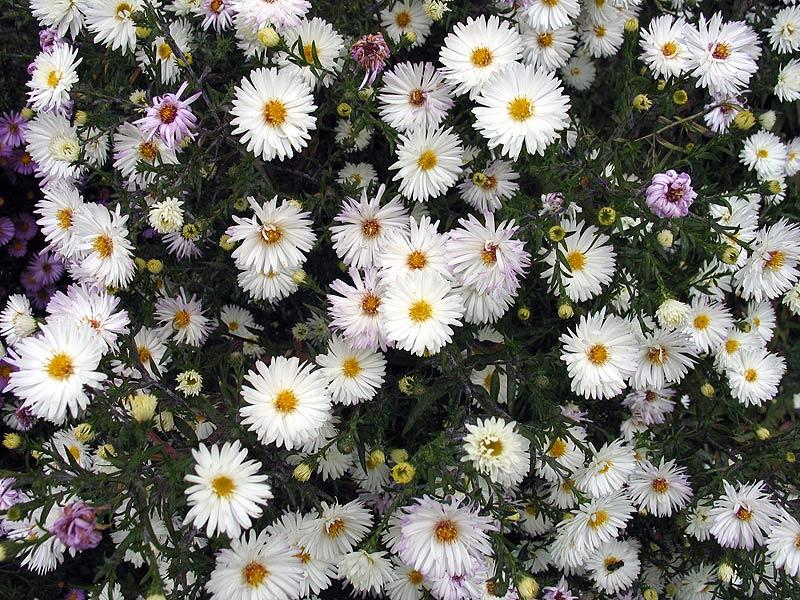
White ladies
Tall, up to 110 centimeters, a bush showered with boiling white flowers, a large yellow core gives it a resemblance to chamomile.Does not require a garter, looks very impressive, blooms in September and blooms with small (2-3 centimeters) flowers for a month.
Royal ruby
The bush is of medium height - 80-90 centimeters, with double, bright crimson flowers and a yellow core. Abundant long-term flowering and unusual color make the variety popular among gardeners.
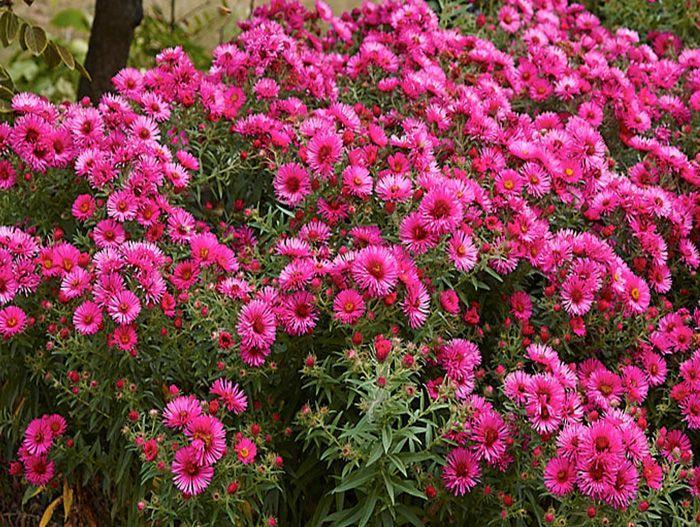
Amethyst
Variety with a tall bush and dark purple inflorescences, blooms from August to mid-October, the diameter of the flowers is 3.5 centimeters.
Sam Benham
A tall one and a half meter grade of the Novobelgiskaya aster with white flowers. Late September bloom allows you to enjoy the beauty of flowers until the very cold.
Royal Blue
The light blue aster flowers of this variety are quite large (up to 4 centimeters). The bright yellow core and semi-double inflorescences look very elegant in the autumn garden. The bushes are tall - up to 120-130 centimeters, the plant blooms in September, the flowering period is 45 days.
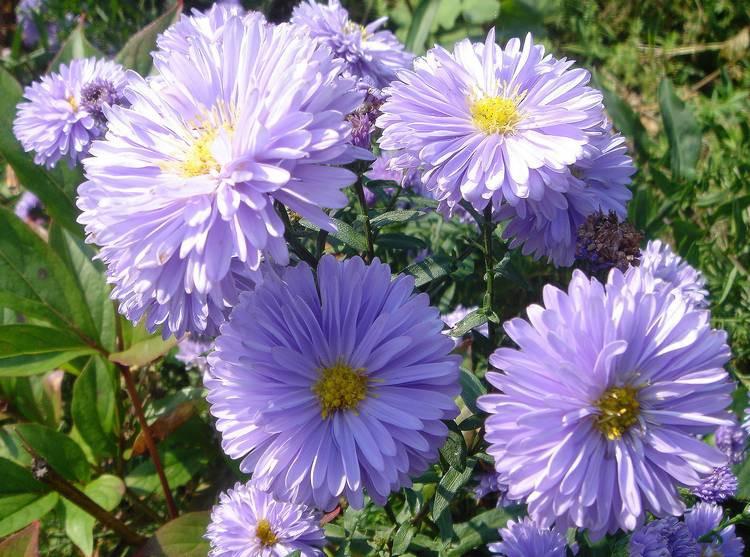
Sunset
Another popular variety of the New Belgian aster with a voluminous tall bush and flowers resembling lilac-pink daisies. Blooms until late autumn. All types of this plant are easy to grow and unpretentious, small flowers are so densely located that foliage is not visible. The bushes are beautiful in the garden, the flowers are great in a vase, and lovers of daisies can simply return to the summer.
Flower propagation
Belgian aster can be propagated by seed, cuttings and dividing the bush. It takes root well and grows quickly with minimal maintenance.
Seed propagation
This is a complex and time-consuming method, therefore it is rarely used by gardeners, and varietal plants are not propagated this way. Seedless and seedling planting methods are used. When sowing in open ground, planting is carried out in November-December, in prepared beds. Before that, the purchased seeds are kept in the refrigerator for a week, and then placed in warm water for a couple of hours.
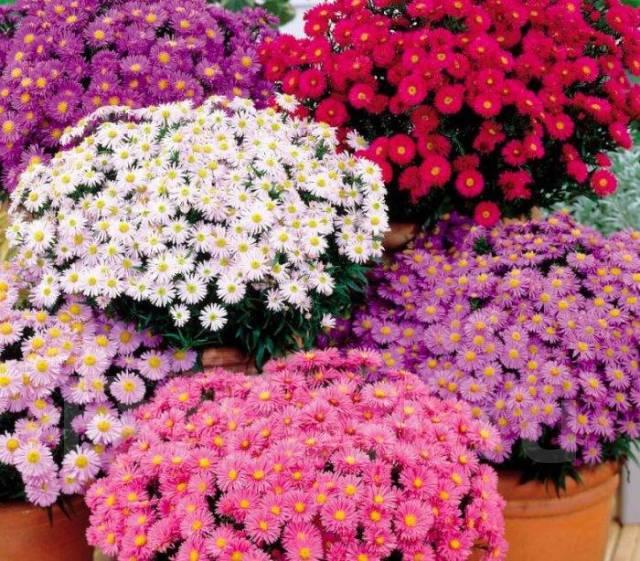
The seeds are placed in small depressions, watered with warm water and covered with soil. In the spring, after the first leaves appear, the plant should be dived. With this method of planting, the Novobelgian aster begins to bloom in 2-3 years.
The seating method provides faster results. Seeds are prepared in the same way as for seedless sowing. They are placed in special containers filled with soil. The best composition for asters is a mixture of sand, humus, peat and turf. Previously it is watered with a pink solution of potassium permanganate.
The boxes with seeds are kept at a temperature of + 20-25 ° C until the first leaves appear, then the seedlings are dived and placed in a cooler place - + 15 ° C. Plants are planted in open ground after 2 months.
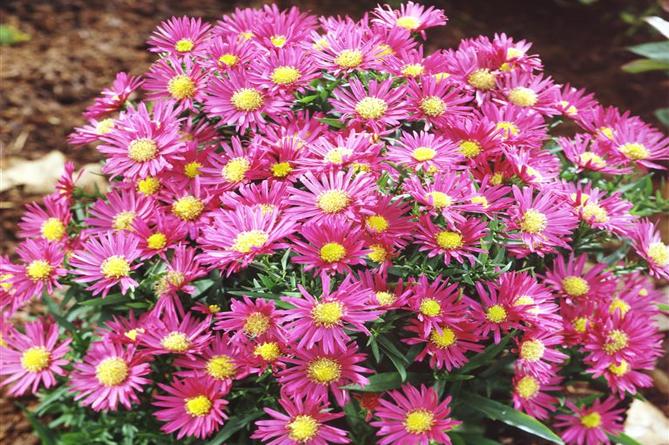
Dividing the bush
This is the easiest way to reproduce. A small bush is dug out of the ground, carefully divided and planted. Transplant in early spring. Large bushes do not need to be dug out, they are simply divided into several parts using a sharp shovel.
Cuttings
To obtain cuttings, use the upper part of the stem. Cut the cuttings 5-8 centimeters long, plant them in boxes with soil. They should be covered with glass or plastic and periodically ventilated and watered. After a month, the cuttings take root, after which the plant can be planted in the chosen place in the garden. It is possible to cut the New Belgian aster, starting in May, throughout the summer.
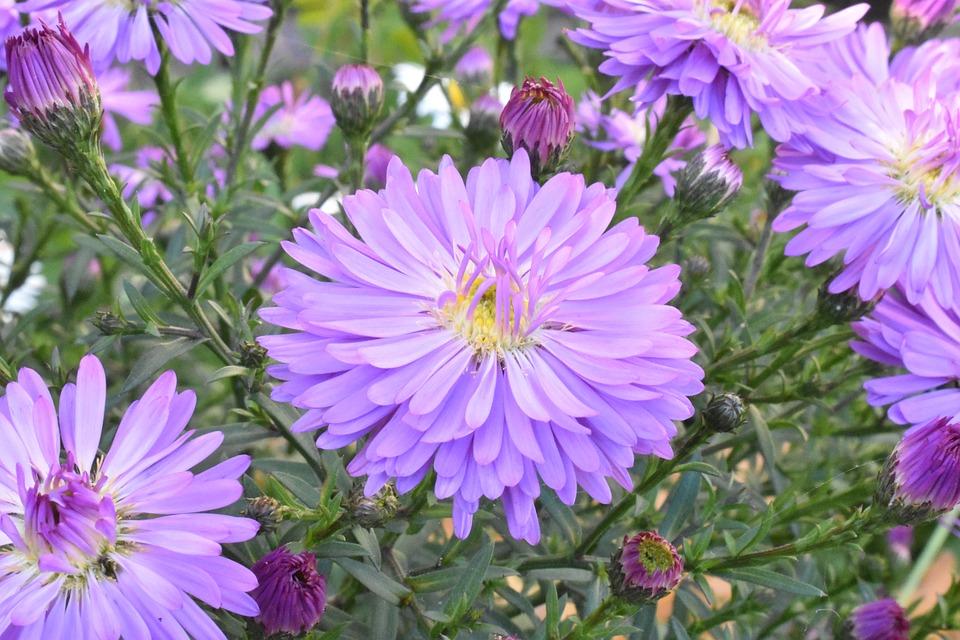
Growing a plant
To grow a really beautiful plant, you need to choose the right place for planting, carefully care for it, feed it and protect it from pests.
Selection and preparation of seedlings
In order for the plant to take root well and become a decoration of the garden, you should:
- decide on the choice of a variety, taking into account the climatic features of the area;
- check the condition of the submitted samples, choose a strong healthy plant, carefully examine it, make sure that there are no pests and diseases;
- find a place for a comfortable existence of plants.
It is better to purchase material for planting in specialized stores or nurseries - you can find quality goods there.
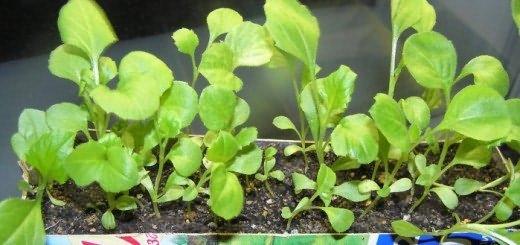
Choosing a landing site
You should decide in advance what the Novobelgian aster will be for you - a common garden decoration, hedge or curb plant. The choice of variety and planting site depends on this. The plant does not like waterlogged soils, suffers from wind and drafts.
Soil preparation
Oktyabrinka prefers light fertile soils with neutral pH. The selected area is dug up, the seedlings are placed at a distance of 40 centimeters from each other, since the bushes grow strongly. On acidic soils, the plant feels bad, in this case it is necessary to apply wood ash to the area with flowers or lime the soil.
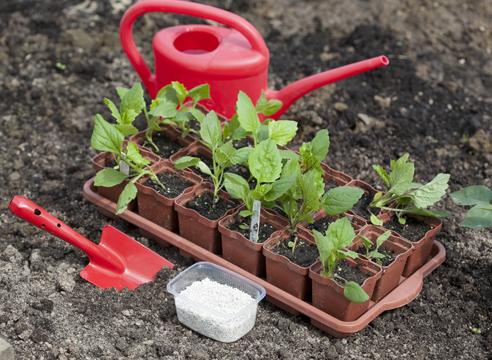
Landing technology
The area for flowers must be dug up, loosened and completely free of weeds. The bushes do not need holes, they are planted in shallow furrows. The plant should be carefully removed from the container, for this it is pre-watered abundantly. It is planted in the ground, the soil is compacted, and then watered.
Flower care rules
The plant does not need any special care.
Watering and feeding
It is even necessary to water it only in a particularly dry summer; it is better to do it with warm water.
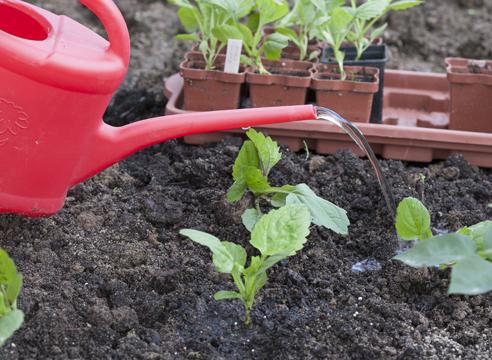
Feeding with mineral complex fertilizers is done twice: when buds are formed and a month after that.
Loosening and mulching
The soil around the flower bushes should be weeded and loosened regularly. To prevent the formation of a dense crust that harms the plant, the soil is mulched.
Preparing the Novobelgiskaya aster for wintering
The roots of a plant that have recently been divided should be covered with spruce branches for the winter, the rest of the bushes do not need protection.
Disease and pest control
The plant can suffer from powdery mildew when the soil is waterlogged. In this case, the flower should be treated with suitable sulfur-containing fungicides according to the manufacturer's recommendations.
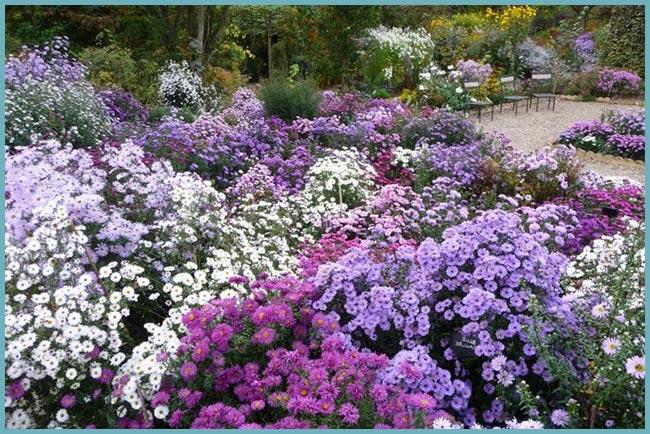
Rust is another fungal disease affecting the New Belgian aster. In this case, it should be treated with Oxyhom or Topaz.
The flower is affected by ticks, aphids, leafhoppers, acaricides. To avoid the spread of pests, you need to not place plants too close to each other, timely remove dead leaves, flowers and bush branches. With the onset of autumn cold weather, dig up the ground under the bushes. When pests appear, immediately treat the bushes with suitable insecticides.
New Belgian aster is an unpretentious plant that even a novice gardener can grow. The main thing is to choose the right litter, and then you can enjoy the bright saturated colors even on a gloomy autumn morning.
